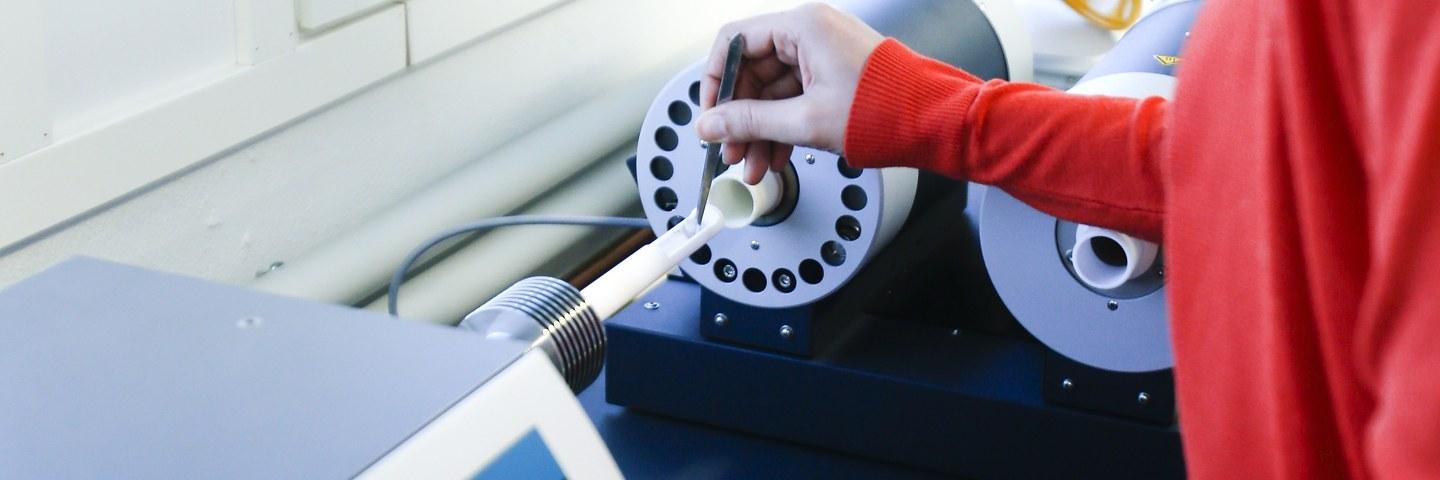Under the Paris Climate Agreement (December 12, 2015), global warming should be slowed down and carbon emissions drastically reduced by 80-95% by 2050. The only reasonable approach to addressing this challenge from a long-term perspective is to immediately start the transition of our current energy system, which is still based on fossil fuels. Hydrogen has promising potential as a new energy source as its energy density is three times higher than that of petroleum. The Polymers4Hydrogen project is pursuing this long-term goal by designing polymer materials and sealing solutions for use under high pressure. Extreme operating conditions (-40 °C, >700 bar) pose numerous challenges for polymer materials technology, ranging from the permeation of hydrogen through composite materials to explosive decompression failure of elastic polymers. In many areas, fundamental scientific knowledge is still lacking to realize future-oriented applications in the field of hydrogen technology. To lay the essential scientific foundations, Polymers 4 Hydrogen was set up using an interdisciplinary approach along the value chain, ranging from polymer chemistry to polymer processing to characterization and simulation of complex material behaviour – a pioneering endeavour in Europe.
An interdisciplinary consortium involving scientific experts was formed with 5 scientific partners, including top international universities and 5 company partners. A stated goal of the consortium is to take the lead when it comes to the fundamental understanding of polymeric materials behavior under extreme operating conditions, and to pushing alternative energy concepts for future applications. Polymers 4 Hydrogen pursues innovative technologies, including the designing of new materials to improve barrier properties against small gas molecules (e.g. hydrogen) and thereby reduce permeation, new winding concepts for liner-less high-pressure storage systems with reusable mandrels, the measurement of permeation properties with a newly developed permeation cell; the implementation of new simulation strategies in the field of Computational Fluid Dynamics, and the determination of the properties of polymers under extreme pressure conditions. The fundamental scientific results of Polymers 4 Hydrogen are to be implemented in business scenarios at a later stage.
Funding source
Funded within the COMET-program by the Austrian Federal Ministry for Climate Action, Environment, Energy, Mobility, Innovation and Technology (BMK) and the Austrian Federal Ministry for Digital and Economic Affairs (BMDW), Österreichische Forschungsförderungsgesellschaft mbH (FFG), the Provinces of Styria, Lower Austria and Upper Austria.
Coordinating organisation
Polymer Competence Center Leoben, Austria
Co-operators
Montan Universitet Leoben
Technical University Munich
Politecnico di Milano
Tampere University
People
Essi Sarlin
Professor Essi Sarlin
Essi SarlinContact persons
Essi Sarlin
Professor Essi Sarlin
Essi Sarlin
